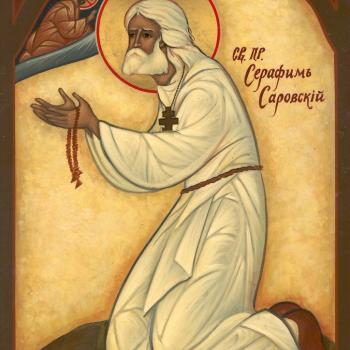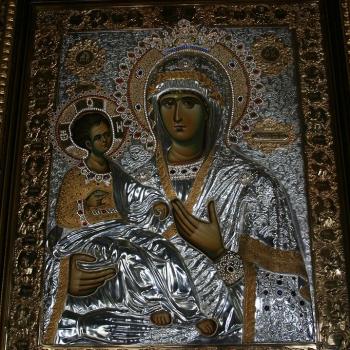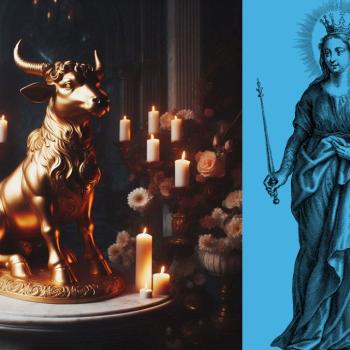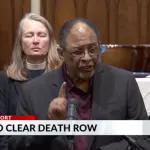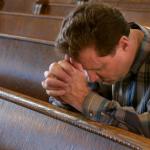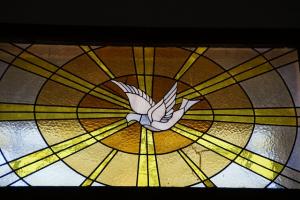
I’d like to draw your attention to a very important piece of reporting I’ve been privileged to experience ahead of time.
This new podcast is a deep dive into the People of Hope Catholic Covenant Community.
Please have a listen to the first two episodes of the “Shadow of Hope” podcast series, which just dropped today. Karen Ann Coburn has created an eight-part series, and she was kind enough to let me listen to these two episodes in advance. They begin the story of the People of Hope Catholic Covenant Community in Berkely Heights, New Jersey. I just finished the first two, and I already can’t wait to listen to the nest six episodes.
I always try to listen to a documentary or a podcast like this in two different ways: first for the technical quality as if it were only a piece of art, and secondly for the quality of the research and the importance of the information. Coburn seems to have hit a home run. It’s a well-done podcast with lots of interviews with Covenant Community survivors including at least one person I know. It’s quick and easy to listen to. I didn’t find my easily distracted mind wandering. Coburn has obviously done a lot of careful research, and the story she’s got to tell is shocking and important.
The People of Hope Community is one I’ve mentioned once before.
I mentioned the group in passing when I found out about the sexual abuse allegations against Mike Scanlan (whom I refuse to call ‘father’ anymore). I didn’t know anything else about the community. It seems to be almost exactly like the Servants of Christ the King Intentional Community that was founded right here in Steubenville– not surprisingly, as the same cast of characters were involved in all of it. You’ll even hear Father Scanlan himself at the beginning of the first episode. John Flaherty, a survivor of Servants of Christ the King, is quoted extensively as well.
The first episode details how the community was founded in New Jersey, how it revitalized a dying parish, and how its leader, Bob Gallic, drew families to join him there. The second episode mostly describes the extremely authoritarian way that the community’s female members were treated– some have speculated that the People of Hope were one of the inspirations for Margaret Atwood’s The Handmaid’s Tale. The third, which is not yet released, promises to explore the cult’s effects on the children.
Listening to the episodes, I was immediately struck by how closely the People of Hope employed what cult survivor and cult expert Dr. Steven Hassan calls the BITE model: the control of cultists’ behavior, thought, and emotion through control of the information they are allowed to consume. The People of Hope were kept isolated from society around them, encouraged to only believe what the leaders said, and had to follow strict rules for every aspect of their lives. They were fed conspiracy theories that Muslims and feminists were out to persecute them. Leaders were encouraged to deliberately make things difficult for the people under them, to toughen them up for the coming persecution. There’s even mention of the Three Days of Darkness prophecy that terrorized me in my own Charismatic Catholic childhood.
The word “cult” can have several meanings, but if you study Hassan’s BITE model at all, you’ll understand why I refer to the Charismatic Renewal in general as a cult, and these intentional communities in particular often become cults.
“Shadow of Hope” lays out that case perfectly. The leaders of the People of Hope had their subjects, their cultists, under an iron fist of control at all times.
I was surprised, though I probably shouldn’t have been, to hear all the same buzzwords that I heard at Franciscan University repeated again and again when describing the People of Hope’s hierarchy. People who went to FUS will recognize “households,” “coordinators,” and so forth. There was even a Franciscan University Faith Household called “The Handmaids.” I should have put two and two together and realized that the “Faith Households” and “Household life” on campus were just meant to be a mini version of an intentional community with some of the aesthetics of a fraternity or sorority. Mike Scanlan didn’t make up anything new in his invention of the Households. He was just applying Charismatic Renewal jargon and control techniques to students.
“Shadows of Hope” will be a hard listen for anybody who’s been hurt by the Charismatic Renewal as I have. But it’s also a very important trove of research into how Covenant Community cults operate and subdue their members. Anyone with an interest in religion and spiritual abuse should definitely tune in!
Mary Pezzulo is the author of Meditations on the Way of the Cross, The Sorrows and Joys of Mary, and Stumbling into Grace: How We Meet God in Tiny Works of Mercy.




